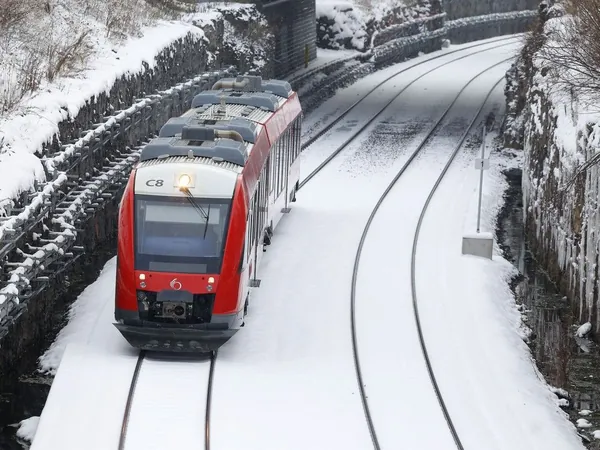
Turkey's Strategic Aims in the Syrian Equation: A Deep Dive
2024-12-05
Author: William
As the civil war in Syria reignites, the implications continue to ripple through the region, particularly for neighboring Turkey. Turkish President Recep Tayyip Erdogan and his far-right coalition partner, Devlet Bahceli, have been vocal about their concerns over the changing balance of power in the Middle East. These shifts could potentially benefit the Kurdish factions in northeastern Syria, who have established control in the region known as Rojava since the conflict erupted in 2011. This development has been a persistent source of anxiety for Ankara, which views Kurdish autonomy as a direct threat to its national security.
The dynamics in Syria are further complicated by the precarious status of allies to Syrian President Bashar Assad. After enduring a year of escalating assaults from Israel, both Iran and Hezbollah have seen their influence wane. Meanwhile, Russia, historically a staunch ally of Assad, is increasingly preoccupied with its own military endeavors in Ukraine. While Russia maintains a military presence in Syria, the current operational capabilities are notably diminished. Defense analyst Burak Yildirim notes that Moscow's deployment includes only 13 fighter jets, a sharp drop from 50, with only a fraction being operational.
Adding to the turbulence is the United States' planned repositioning in the region. As the prospect of US President Donald Trump's policies unfolds, questions surrounding the future of American troops in Syria and Iraq loom large, posing further uncertainty for the landscape.
Syrian Rebels See a Tactical Opening
Amidst these developments, Syrian rebel factions discern a potential advantage, launching a significant offensive against Assad's forces on November 27. This initiative resulted in the rapid capture of Aleppo, Syria's second-largest city, with ambitions to extend the campaign into neighboring urban areas. Notably, this operation is spearheaded by Hayat Tahrir al-Sham (HTS), a militant group once affiliated with Al-Qaeda, which the US has labeled a terrorist organization.
Experts believe Ankara had prior knowledge of this offensive, and some suggest Turkey might even be providing military support to these rebel factions, as the geographical conditions necessitate supplies from its borders. This assertion highlights the strategic cooperation between Turkey and its allied groups in northern Syria.
Turkey's Objectives: Targeting the Kurdish Administration
From the onset of the Syrian civil war, Ankara has aligned itself with opposition forces, severing diplomatic ties with Damascus. Recent attempts by Erdogan to engage in dialogue with Assad have been rebuffed, as the Syrian leader demands the withdrawal of Turkish troops from the north before any normalization can take place. Yet, Turkey remains firmly entrenched in what it categorizes as a "security zone," established with the assistance of the Syrian National Army (SNA)—an Islamist militia backed by Ankara.
Turkey's ultimate goal appears to be the dismantling of the Kurdish-led Autonomous Administration of North and East Syria, primarily governed by the Democratic Union Party (PYD), closely linked to the PKK, which Turkey designates as a terrorist organization. Following the fall of Aleppo, the SNA promptly initiated operations against Kurdish positions, reflecting Turkey's endorsement of these efforts.
Despite Ankara's public denial of direct involvement in Syria, its Foreign Minister Hakan Fidan has assured that Turkey will not back actions leading to a new wave of refugees. Currently housing approximately 3.5 million Syrian refugees, Turkey's domestic situation is strained, further compounded by an economic crisis. The growing discontent regarding the influx of refugees has created electoral challenges for Erdogan, who has voiced intentions to repatriate many back into the buffer zone in northern Syria.
A Calculated Military Collaborator?
The relationship between Ankara and the SNA raises questions about the extent of Turkey's control over these allied forces. Defense expert Burak Yildirim posits that the SNA operates under Turkey's strategic guidance, suggesting that operations are conducted according to Turkish plans without internal conflict among insurgent factions. Both the SNA and HTS share a common objective: the ousting of Assad, creating the possibility of a divided region under their control.
In recent skirmishes, the Turkish-backed rebels have claimed successes against Kurdish forces, with reports indicating significant territorial gains around Tell Rifaat and intentions for further assaults against Kurdish settlements. However, despite Ankara's military support, the Turkish government remains cautious about provoking direct confrontation with Russia, Iran, and Assad's regime.
Since launching military operations in 2016, Turkey has continued its bombardment of Kurdish areas. Turkish forces have established a presence in various locations, including Jarabulus, al-Bab, and Idlib—regions that remain volatile.
Human rights organizations like Human Rights Watch have called attention to allegations of war crimes committed by Turkish-backed factions, citing incidents of kidnapping, looting, torture, and sexual violence in the territories controlled by Turkey. These reports paint a grim picture of the human cost of the ongoing conflict and the complexities surrounding Turkey's role in the Syrian crisis.
As the situation evolves, Turkey's strategies will undoubtedly shape not only the future of Syria and its people but also the broader geopolitical landscape in the region. The stakes are high, and the ensuing actions could lead to profound consequences for all parties involved.









 Brasil (PT)
Brasil (PT)
 Canada (EN)
Canada (EN)
 Chile (ES)
Chile (ES)
 España (ES)
España (ES)
 France (FR)
France (FR)
 Hong Kong (EN)
Hong Kong (EN)
 Italia (IT)
Italia (IT)
 日本 (JA)
日本 (JA)
 Magyarország (HU)
Magyarország (HU)
 Norge (NO)
Norge (NO)
 Polska (PL)
Polska (PL)
 Schweiz (DE)
Schweiz (DE)
 Singapore (EN)
Singapore (EN)
 Sverige (SV)
Sverige (SV)
 Suomi (FI)
Suomi (FI)
 Türkiye (TR)
Türkiye (TR)